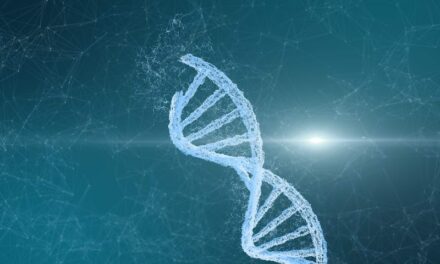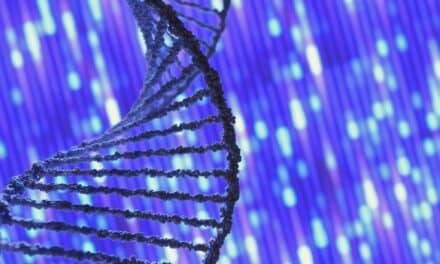Summary: A study on recessive genetic contributions to developmental disorders found that most undiagnosed cases are linked to known genes, emphasizing the need for improved interpretation of these variants to enhance diagnosis rates.
Takeaways:
- Over 80% of undiagnosed recessive developmental disorder cases are tied to known genes, showcasing the need to focus on genetic variant interpretation.
- The study analyzed data from nearly 30,000 families, highlighting how recessive variants’ prevalence varies across different ethnic groups.
- Reanalyzing genetic data with updated methods could lead to more diagnoses, improving outcomes for families with previously undiagnosed conditions.
Scientists have conducted a large study on how recessive genetic changes contribute to developmental disorders(1), and found that most undiagnosed cases that are due to recessive causes are linked to genes we already know about, and suggest a shift in research focus could improve diagnosis rates.
Assessing Developmental Disorders
Researchers from the Wellcome Sanger Institute and their collaborators at GeneDx analyzed genetic data from nearly 30,000 families affected by developmental disorders—six times more families with greater diversity in ancestral backgrounds compared to previous work.
While discovering several genes that were previously not linked to these conditions, researchers found that known genes explain over 80% of cases caused by recessive genetic variants. This is a significant increase from previous estimates(2). The study also revealed the contribution of recessive genetic variants to developmental disorders varies significantly across the ethnic groups studied.
The findings, published in Nature Genetics, shed new light on the genetic basis of developmental disorders, and highlight the importance of considering a person’s genetic background in diagnosis and research.
Interpreting Genetic Changes
The team suggests that efforts to discover recessive genes associated with these disorders in the last few years have been largely successful and that the challenge now lies more in interpreting genetic changes in known recessive genes. Using this approach could potentially be used to diagnose twice as many patients compared to focusing solely on remaining gene discovery, they say(3).
Many developmental disorders, which can impact a child’s physical, intellectual, or behavioral development, have genetic origins. Some are caused by recessive genes, where a child must inherit an altered gene copy from both parents to develop the condition. They include Joubert syndrome, Bardet-Biedl syndrome and Tay-Sachs disease. Until now, overall quantification of these recessive genetic causes across diverse populations has not been done.
In this new study, researchers combined summarised data from the Deciphering Developmental Disorders (DDD) study(4) and GeneDx cohorts to identify individuals with similar genetic backgrounds, totalling 29,745 families. Over 20% of these families were from mostly non-European ancestries. Analyzing this large dataset provided more insight, especially for smaller and less-studied groups.
Recessive Genetic Variants
The team found the number of patients affected by recessive genetic variants varied greatly between different ancestry groups, ranging from two to 19% of cases. This variation is strongly linked to the prevalence of unions between close relatives—consanguinity—in these groups.
Researchers identified several genes, including KBTBD2, CRELD1 and ZDHHC16, newly associated with developmental disorders, providing answers for previously undiagnosed families. They also estimate that around 12.5% of patients may have multiple genetic factors contributing to their condition, highlighting the complexity of these disorders.
Importantly, they found known genes explain about 84% of cases caused by recessive genetic variants, which was similar across individuals from European and non-European ancestry groups5. This substantial increase from previous estimates suggests that the new recessive genes that have been discovered over the last few years account for a substantial fraction of previously undiagnosed patients with recessive causes. However, the scientists found that there are likely still diagnoses being missed in these known genes that involve DNA changes that are difficult to interpret(3). The findings emphasize the importance of improving interpretation of harmful genetic variants in known disease-causing genes.
“These gene discoveries will provide answers for some previously undiagnosed families and help clinicians better understand and identify these conditions,” says Kartik Chundru, PhD, first author of the study, formerly at the Wellcome Sanger Institute and now University of Exeter. “Our study highlights the importance of reanalysing genetic data with updated methods and knowledge, as it can lead to new diagnoses for patients without needing additional samples.”
Vincent Ustach, PhD, senior author of the study at GeneDx, added: “This is the most diverse group of participants ever studied to address the recessive contribution to developmental disorders, and showcases the critical impact that a diverse dataset has for delivering a more comprehensive understanding of developmental disorders across different ancestries. Findings from this study can drive more personalised and actionable results for families with affected children, and overall enhances our ability to provide answers for underrepresented populations.”
Notes to Editors:
- Some rare disorders, such as cystic fibrosis, Tay-Sachs disease and spinal muscular atrophy, are caused by autosomal recessive genetic variants. ‘Autosomal’ means that the gene in question is located on one of the numbered, or non-sex, chromosomes. ‘Recessive’ means that two copies of the mutated gene – one from each parent – are required to cause the disorder. In a family where both parents are carriers and do not have the disease, roughly a quarter of their children will inherit two disease-causing copies and have the disease.
- Lower estimates of the impact of recessive variants on these disorders in known genes in 2018 reflect the success of new disease gene discoveries in the field since.
H. Martin et al. (2018) ‘Quantifying the contribution of recessive coding variation to developmental disorders’ Science. DOI: 10.1126/science.aar6731
- Researchers estimated from the genetic data that there are around 280 potential diagnoses that could be made from protein-altering variants in the known genes. This is compared to an estimate of about 161 potential diagnoses that could be made from undiscovered genes.
- The Deciphering Developmental Disorders (DDD) study aims to advance clinical genetic practice for children with developmental disorders. Children were recruited into the study between 2010 and 2015.
The DDD study is no longer recruiting new patients. If your child has an undiagnosed developmental disorder please speak with your paediatrician or GP about the most appropriate tests or referral into other studies.
The DDD team is absolutely committed to analysing and re-analysing all the genomic data from families in the study over the coming five years to try to find a diagnosis for as many children as possible. More information about the DDD study can be found at www.ddduk.org
- This is true for both European and non-European ancestry individuals (87% vs 80%).





